Our mission is to provide an adaptive cycling experience for differently abled people of all ages
We know that regular participation in cycling can lead to improved physical health and mental well-being, greater independence, and a sense of belonging to a larger community. A disability should not prevent people from those benefits. Cycling, particularly tandem cycling and group rides, give differently abled people a chance to engage with others and the world around them.
What We Do
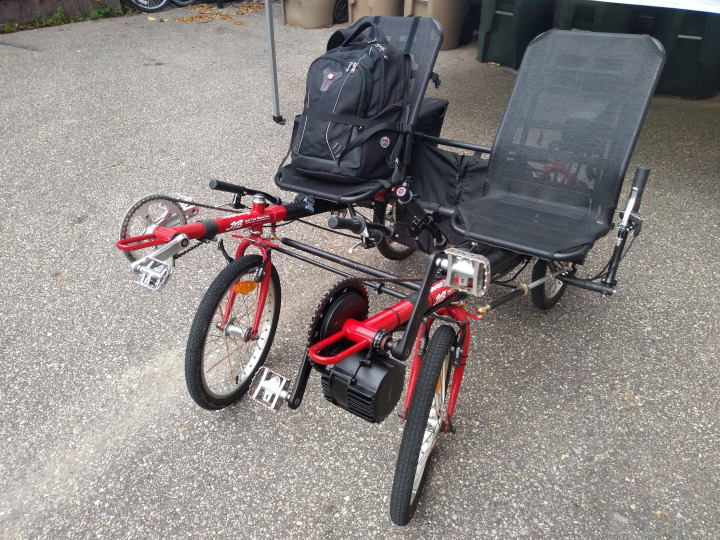
Access
We can provide physical access to a range of various adaptive cycles, to discover possibilities. We can assist in finding the right fit between individual and cycle, and in identifying funding sources.
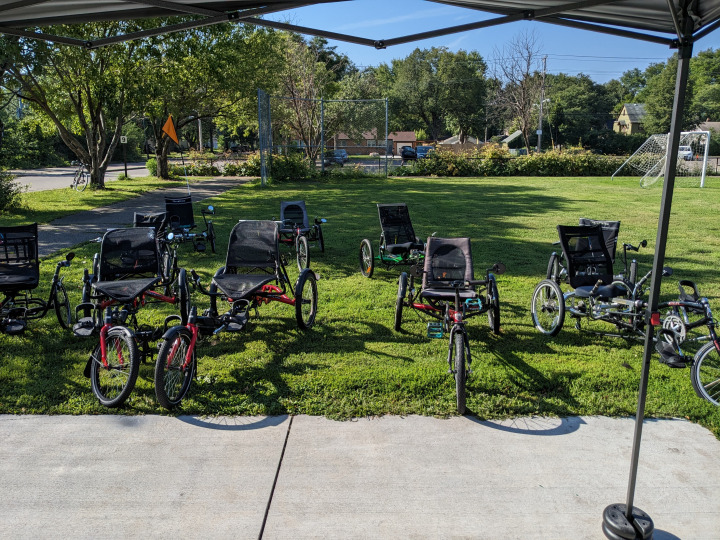
Partner
We partner with various nonprofits to lead sessions on such topics as learning-to-ride, safety and security, and places to ride. We attend events to provide information to a wide variety of audiences.
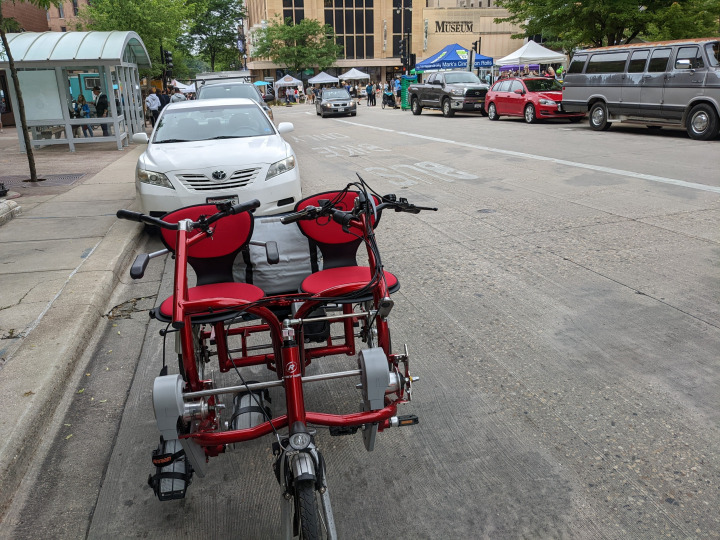
Advocate
We support adaptive cycling for families and individuals who are differently abled, promoting cycling infrastructure such as bike paths, roadways, parking, bike racks, and other forms of advocacy.
What Are Adaptive Cycles?
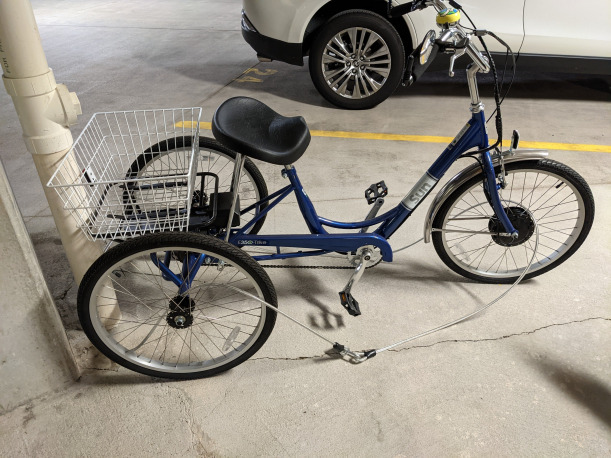
Trikes are one of the basic forms of adaptive cycle and inexpenseive ones can be found online and in local bike shops. but be careful. Although you can find these easily enough, the ones at box stores for $300 are typically made with inferior parts. I've heard from owners that the seat won't stay in place. The brakes have to be continuously adjusted, are noisy, or simply don't work. The tires wear out quickly. The paint peels off and everything gets rusty not long after purchase.
Recumbent trikes, where the rider sits in a more reclined position and has a backrest, commonly come in two versions. The tadpole, which has two wheels on either side of the seat and one right behind the seat. This style is very aerodynamic and they are often used in competitions. Some people are concerned about safety with these cycles because they are so low to the ground and may be less visible, but they are much easier to transport than other styles. They can easily fit in the back of a minivan.
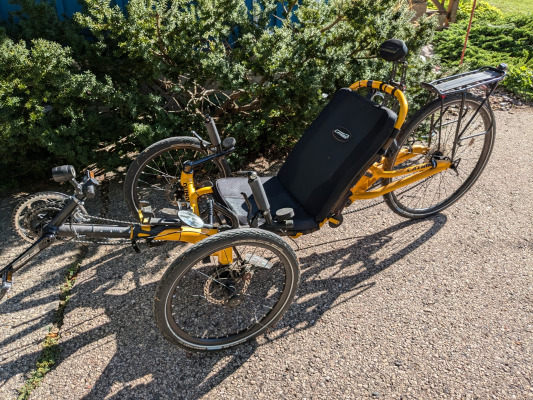
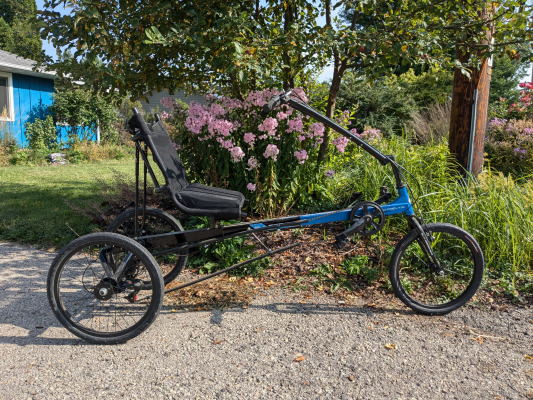
The other popular version, which is typically less expensive than other versions, is the delta style. The delta is a little higher off the ground than the tadpole, as two wheels in back and one in the front, and can be a little more challenging to transport without a specialized rack or trailer.
Tandems come in a wide variety of styles and we cannot describe them all. The most common is the traditional bike for two, a two-wheeled cycle where the rider in front, often referred to as the “captain,” does the steering and braking. The “stoker,” the person in the rear, pedals along with the captain and contributes to powering the bicycle forward. Balance on a traditional tandem can be a challenge, especially for someone who has a sensory processing disorder or other disability. Getting on and off a two-wheeled tandem takes practice, too.
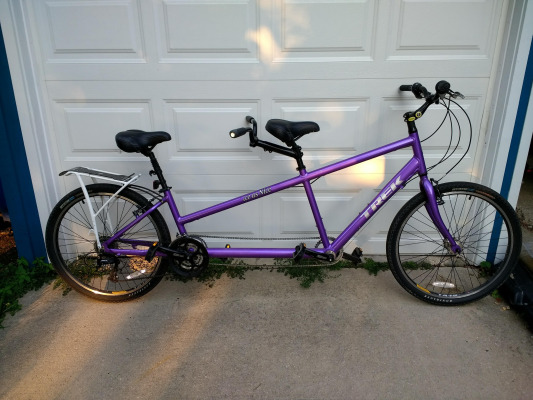
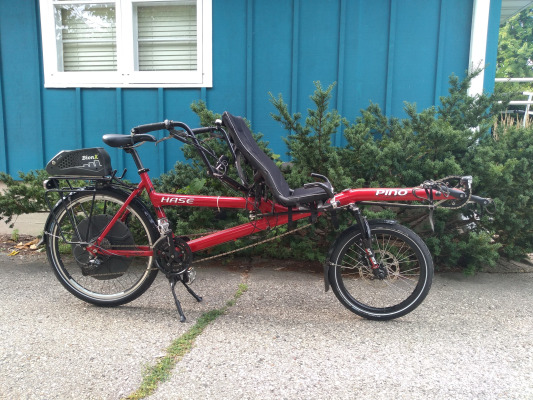
Newer adaptive forms of tandems are produced all the time. Tandems are a great idea if one of the riders is unable to steer or navigate on their own. Many allow the disabled rider to either pedal along or not pedal at all. The buddy bike is a two-wheel style tandem where a child or smaller person can ride in front, the adult or “captain” rides in back.
There are also a growing number of three-wheeled and four-wheeled tandem bikes, some even made for side-by-side riding. We have a side-by-side tandem that we ride with our daughter. One advantage of riding next to one another is it allows the riders to have a conversation. Usually because of their wider wheelbase they are less likely to tip, although we did own one years ago and tipped over several times when we took the corner too tightly, when there was a big weight difference between me and our little girl. Downsides are these styles are bulky and expensive. A truck or trailer is necessary if you need to transport one. Loading and unloading might take two people.
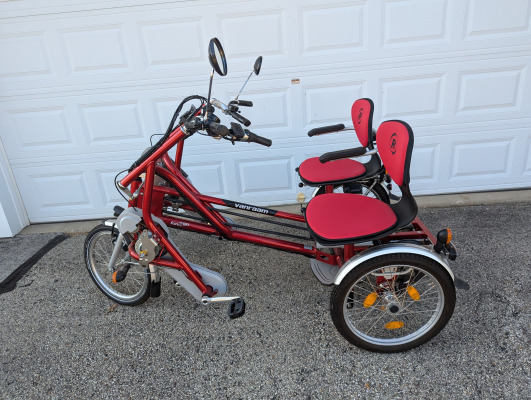
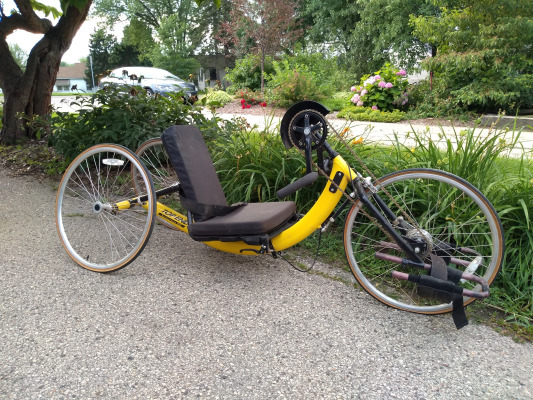
Handcycles allow a person to propel themselves using their arms, so they are often used by those with lower limb mobility issues. There are upright trikes, tadpoles, deltas, and other hand cycle styles. And add-ons can be attached to a wheelchair to turn it into a handcycle, too.

